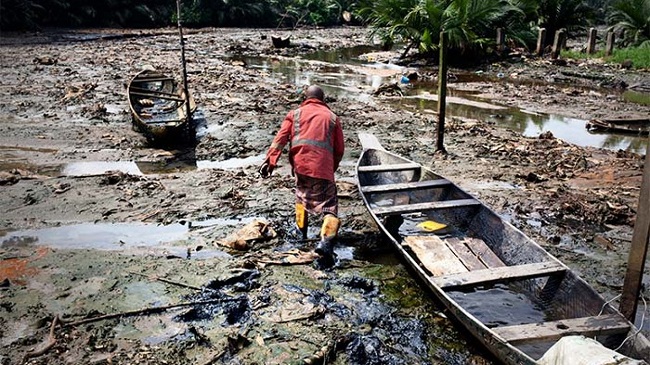Following the “gilets jaunes” crisis in 2019, President Emmanuel Macron convened a “citizen’s climate assembly” – the Convention Citoyenne pour le Climat (CCC) of 150 randomly selected French citizens – and gave them a mandate to discuss and propose policies for addressing the climate crisis.

The CCC has just voted on its final proposals. Foremost among these is a crime of ecocide, intended to remove the impunity of big polluters acting in full knowledge of the risks to ecosystems. The crime is defined using the concept of “planetary boundaries”, developed by the Stockholm Resilience Institute and influential in the drafting of the UN’s Sustainable Development Goals. The framework lists nine connected “planetary boundaries” (eg CO2 levels, ocean acidification, biosphere integrity) beyond which we cannot go without risking irreversible damage to the Earth’s ability to sustain human life.
Valérie Cabanes, lawyer, activist and established voice for ecocide law in France and beyond, presented to the CCC in January the law proposal for which she had previously been lobbying. Inspired by the work of late British lawyer Polly Higgins, Cabanes has dedicated many years to legally enshrining the protection of nature.
Thrilled, she said: “The approval of the Citizen’s Climate Convention reflects and speaks for a French population ready to adopt a law that respects the Earth’s ecosystems. The CCC also proposed that this law be decided via referendum, to avoid censure by parliament – letting the French population choose their own destiny: living in harmony with nature and protecting future generations – or not. It’s a symbolic and powerful step. Now we wait for our leaders to listen – and act in accordance with the proposals.”
Jojo Mehta, co-founder with Higgins’ of the Stop Ecocide campaign, works closely with Cabanes and others around the world to progress a crime of ecocide at the International Criminal Court.
She said on Sunday, June 21, 2020: “The news from France is phenomenal. It clearly demonstrates that citizens feel the urgent need for an enforceable deterrent to prevent ecosystem destruction. We trust the French government will respond positively and step up at the national level – even take the opportunity to lead at the international level, where Macron has already stated he believes this crime belongs (*20h04 in the timeline).
“The ball is already rolling… climate-vulnerable states we have been working with have called for ecocide crime to be considered at the International Criminal Court in the Hague. This vote is a huge pointer for France to move in the right direction, and will undoubtedly inspire other countries.”
Elisabeth Borne, the French Minister for Ecological Transition, has said she is in favour of the proposal and will meet with the citizens’ assembly on Monday, June 22. President Macron is due to meet with them a week later on the 29th.
